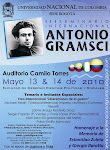Una Carta a propósito de un escrito de Apiah. Escribe Luis Mejía, doctor en Economía y activista colombiana en causas sociales en la ciudad de New York. N de la R.
Gentlemen of the New York Times:
Mr. Apiah has spent years positioning himself as the voice of the third world pro-Republican, extreme conservative "inteligentzia". He certainly has succeeded, specially for his amazing ability to look for historical arguments overlooking the important pieces of historical records that do not fit in his -and his audience's- mental world. His article on the engineering of social change [http://www.nytimes.com/2010/10/24/magazine/24FOB-Footbinding-t.html?ref=magazine]that you host in your pages in today's edition of the Sunday Magazine -is that your way of showing that virtue pays homage o vice?- is a perfect case in point.
He manages to tell the story of the disappearance of foot binding in China as a fait accomplis by the end of the 19 century, giving himself the freedom to completely ignore the contributions of the Chinese Republic starting in 1911 and the communist regime in 1949 and after to the end of that horrendous practice.
In addition, as usually happens with the conservative fringe represented by Mr. Apiah, there is the issue of shamelessly appropriating other peoples ideas. If you take a look at John Mao's "Foot Binding: Beauty And Torture" in The Internet Journal of Biological Anthropology. 2008 Volume 1 Number 2 [http://www.ispub.com/journal/the_internet_journal_of_biological_anthropology/volume_1_number_2_8/article/foot_binding_beauty_and_torture.html] you will find a remarkable similarity in the description of a "successful" intervention of social engineering to achieve cultural change to Mr. Apiah's own recommendations.
I am a frequent reader of Benjamin Bentham's Handbook of Political Fallacies. Knowing that he is supposed to be one of the leading thinkers of intelligent conservatism, I find fascinating that his disciples do exactly the opposite of what he recommends to elaborate truthful, clear, logical, cogent and convincing arguments.
Sincerely,
Luis Mejia, Ph.D.
241 West 111 St., #3
New York, NY 10026
212 662 3906
Gentlemen of the New York Times:
Mr. Apiah has spent years positioning himself as the voice of the third world pro-Republican, extreme conservative "inteligentzia". He certainly has succeeded, specially for his amazing ability to look for historical arguments overlooking the important pieces of historical records that do not fit in his -and his audience's- mental world. His article on the engineering of social change [http://www.nytimes.com/2010/10/24/magazine/24FOB-Footbinding-t.html?ref=magazine]that you host in your pages in today's edition of the Sunday Magazine -is that your way of showing that virtue pays homage o vice?- is a perfect case in point.
He manages to tell the story of the disappearance of foot binding in China as a fait accomplis by the end of the 19 century, giving himself the freedom to completely ignore the contributions of the Chinese Republic starting in 1911 and the communist regime in 1949 and after to the end of that horrendous practice.
In addition, as usually happens with the conservative fringe represented by Mr. Apiah, there is the issue of shamelessly appropriating other peoples ideas. If you take a look at John Mao's "Foot Binding: Beauty And Torture" in The Internet Journal of Biological Anthropology. 2008 Volume 1 Number 2 [http://www.ispub.com/journal/the_internet_journal_of_biological_anthropology/volume_1_number_2_8/article/foot_binding_beauty_and_torture.html] you will find a remarkable similarity in the description of a "successful" intervention of social engineering to achieve cultural change to Mr. Apiah's own recommendations.
I am a frequent reader of Benjamin Bentham's Handbook of Political Fallacies. Knowing that he is supposed to be one of the leading thinkers of intelligent conservatism, I find fascinating that his disciples do exactly the opposite of what he recommends to elaborate truthful, clear, logical, cogent and convincing arguments.
Sincerely,
Luis Mejia, Ph.D.
241 West 111 St., #3
New York, NY 10026
212 662 3906



No hay comentarios:
Publicar un comentario